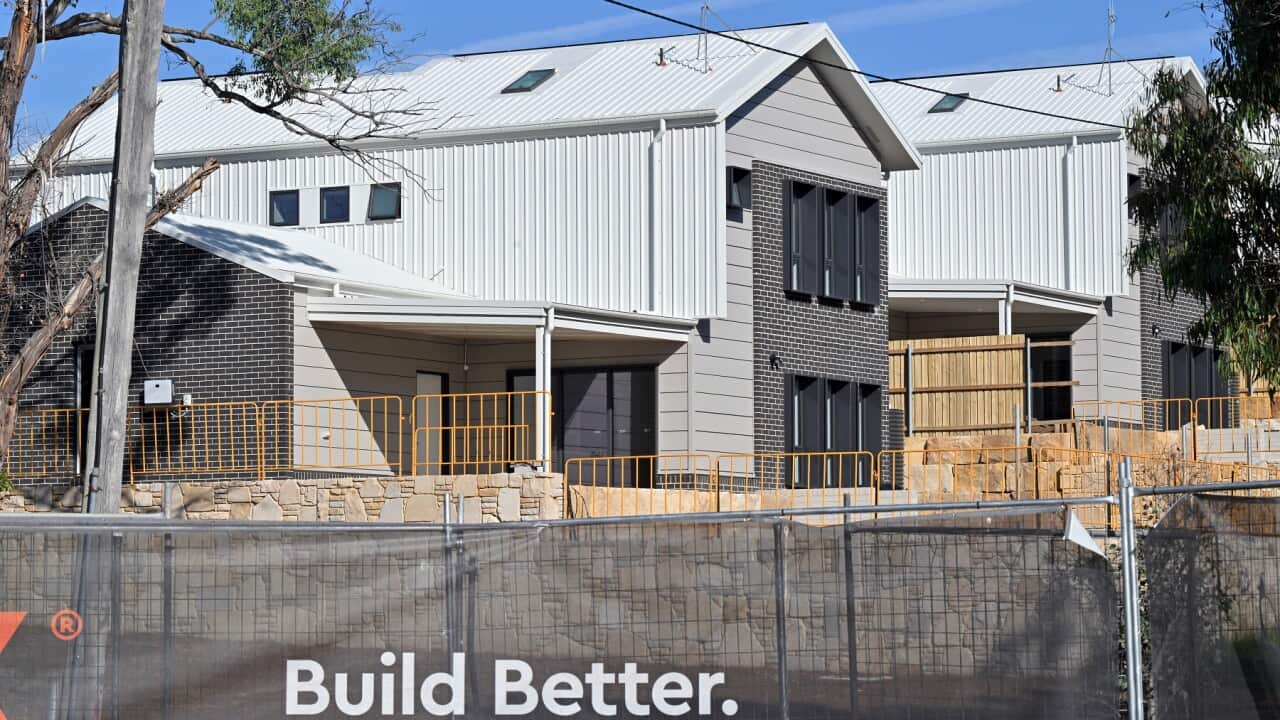Italiano
La cannabis su prescrizione è disponibile in Australia dal 2016.
È usata da più di 700.000 persone per gestire il trattamento del cancro, la sclerosi multipla, l'epilessia e altre condizioni mediche.
Alice Davy è una di loro e dice di prendere la situazione seriamente, come fanno gli altri pazienti.
"A hundred percent of patients are - they're unwell, whether that is with chronic pain, whether that is with insomnia. Whatever they are using cannabis for to treat we are not going to abuse that. We're not going to abuse the power of being able to have this medication and live well."
Uno dei principali principi attivi di alcuni prodotti a base di cannabis terapeutica è il tetra-idrocannabinolo o THC, un composto che può essere rilevato più di una settimana dopo il suo consumo e che ha portato i consumatori autorizzati a divieti di guida automatici e a multe salate nello stato del Victoria, quando sono stati trovati con questo composto nell’organismo.
David Ettershank, membro del Victorian Legislative Council, ha affermato che d'ora in poi ciò non avverrà più automaticamente.
"Until now, if you're a medicinal cannabis patient driving unimpaired and you get pulled over by the police you automatically have your licence suspended for a minimum of six months, plus a fine. From the first of March, that law is now changed."
Ettershank afferma che il divieto automatico di guida non ha mai avuto molto senso.
Secondo Ettershank, i magistrati avranno ora la discrezione di determinare se un conducente era alterato al volante.
"You'll be able to go in and say I am a medicinal cannabis patient, I wasn't driving impaired. I was operating in a manner consistent with my doctor's advice and therefore I would like to keep my licence... And that's the principle on which we fought this, which was that medicinal cannabis patients - like every citizen - have a right to their day in court."
L'ex Parlamentare e attuale candidata del partito Legalise Cannabis, Fiona Patten, ha affermato che il cambiamento è frutto di un lungo lavoro.
"This has been an ongoing conversation in this Parliament since we first passed medicinal cannabis legislation back in 2016. So it's been a long road - and a long road for patients, patients who were getting great relief from this medicine but fearing losing their licence."
Secondo le sue stime, avrà un impatto su molte migliaia di persone.
"It will affect at least 70,000 Victorian patients and their families. These are mums who drive their kids to soccer. These are dads who need to get to work."
La modifica è stata introdotta mentre il Victoria conduce un esperimento, per la prima volta al mondo, guidato dalla Swinburne University, che mira a capire come il THC influisca sulle prestazioni di guida e sui rischi sulla strada.
L'opinione corrente è che il THC possa influenzare l'attenzione, la capacità di giudizio, la memoria, la vista e la coordinazione di un guidatore.
Il partito Legalise Cannabis Victoria, però, sostiene che le prove non supportano questa tesi.
Il dottor Michael Udoh, farmacologo della Sydney University, ha dichiarato a SBS che l'effetto della cannabis terapeutica può variare da persona a persona.
"You can have some people who have very high concentration of THC, but they are not impaired, and this is usually typically chronic users, or experienced users, whereas you could have someone with a very low blood concentration of THC, and they are very impaired, so it's very difficult for the law enforcement agencies to really easily determine whether a particular blood concentration of THC is sufficient to induce cognitive impairment."
Alice Davy ha detto che la sua esperienza personale dimostra che la cannabis terapeutica non significa automaticamente che lei sia una guidatrice insicura.
"I am a better driver, because previously - you know, prescribed opioids (and) benzodiazepines. The next day I would still be very foggy and my spatial awareness was not very good. And I was legally allowed to drive on these medications with no repercussions at all. So when I get a good night's sleep, which is most nights with medicinal cannabis, I feel great in the morning. There's no impairment. And I get in the car and I drive."
Resta da vedere come gli altri Stati e territori risponderanno al cambiamento del Victoria.
Durante il Drug Summit dello scorso anno nel NSW, un gruppo di delegati che comprendeva il sindacato dei servizi sanitari, l'associazione delle infermiere e delle ostetriche del NSW e gruppi di medici, ha affermato in una lettera aperta la necessità di emendare le leggi sulla guida delle droghe per classificare la cannabis terapeutica allo stesso modo degli altri farmaci da prescrizione.
I principali partiti politici sembrano rimanere contrari a una drastica revisione legale .
Ma la Premier del Victoria Jacinta Allan ha detto che il suo Stato è felice di fare da apripista alla politica sulla cannabis.
"This has been an important step in the journey we've been making... Medicinal cannabis can make a real difference to them (patients), being able to not just deal and manage their pain but also get back to work and get back to being an active participant in communities. And one of the barriers to that has been the impact on being able to drive a motor vehicle."
Inglese
Prescription cannabis has been available in Australia since 2016.
It's used by more than 700,000 people to manage cancer treatment, multiple sclerosis, epilepsy and other medical conditions.
Alice Davy is one of them - and she says she takes it seriously, like other patients do.
"A hundred percent of patients are - they're unwell, whether that is with chronic pain, whether that is with insomnia. Whatever they are using cannabis for to treat we are not going to abuse that. We're not going to abuse the power of being able to have this medication and live well."
A major active ingredient in some medicinal cannabis products is tetra-hydrocannabinol or THC, a compound that can be detected more than a week after it is consumed, and which has landed authorised users with automatic driving bans and hefty fines in Victoria when they have been caught with it in their body.
Victorian Legislative Council member David Ettershank says that will now no longer automatically be the case.
"Until now, if you're a medicinal cannabis patient driving unimpaired and you get pulled over by the police you automatically have your licence suspended for a minimum of six months, plus a fine. From the first of March, that law is now changed."
Mr Ettershank says an automatic driving ban never made much sense.
He says magistrates will now have the discretion to determine if a driver was impaired at the wheel.
"You'll be able to go in and say I am a medicinal cannabis patient, I wasn't driving impaired. I was operating in a manner consistent with my doctor's advice and therefore I would like to keep my licence... And that's the principle on which we fought this, which was that medicinal cannabis patients - like every citizen - have a right to their day in court."
Former member of Parliament and current Legalise Cannabis party candidate Fiona Patten says the change has been a long time coming.
"This has been an ongoing conversation in this Parliament since we first passed medicinal cannabis legislation back in 2016. So it's been a long road - and a long road for patients, patients who were getting great relief from this medicine but fearing losing their licence."
She estimates it will impact many thousands of people.
"It will affect at least 70,000 Victorian patients and their families. These are mums who drive their kids to soccer. These are dads who need to get to work."
The change is being introduced as Victoria conducts a world first trial, led by Swinburne University, that aims to understand how T-H-C impacts driving performance and risk on the road.
The current wisdom is that THC can impact a driver's attention, judgement, memory, vision and coordination.
But the Legalise Cannabis Victoria party says the evidence does not support that argument.
University of Sydney Pharmacologist Dr Michael Udoh has told SBS that the effect of medicinal cannabis can vary, from person to person.
"You can have some people who have very high concentration of THC, but they are not impaired, and this is usually typically chronic users, or experienced users, whereas you could have someone with a very low blood concentration of THC, and they are very impaired, so it's very difficult for the law enforcement agencies to really easily determine whether a particular blood concentration of THC is sufficient to induce cognitive impairment."
Alice Davy says her own experience shows medicinal cannabis does not automatically mean she is an unsafe driver.
"I am a better driver, because previously - you know, prescribed opioids (and) benzodiazepines. The next day I would still be very foggy and my spatial awareness was not very good. And I was legally allowed to drive on these medications with no repercussions at all. So when I get a good night's sleep, which is most nights with medicinal cannabis, I feel great in the morning. There's no impairment. And I get in the car and I drive."
It remains to be seen how other states and territories will respond to Victoria's change.
During last year's Drug Summit in New South Wales, a group of delegates that included the Health Services Union, the New South Wales Nurses and Midwives' Association and doctors' groups, said in an open letter that there was a need to amend drug-driving laws to classify medicinal cannabis in the same way as other prescription drugs.
Major political parties appear to remain opposed to a significant legal overhaul.
But Victorian Premier Jacinta Allan says Victoria is happy to lead the way on cannabis policy.
"This has been an important step in the journey we've been making... Medicinal cannabis can make a real difference to them (patients), being able to not just deal and manage their pain but also get back to work and get back to being an active participant in communities. And one of the barriers to that has been the impact on being able to drive a motor vehicle."










